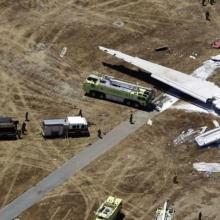How often do planes crash?
Every 2-3 seconds someone lands or takes off. Some are happy about this, others are afraid. Is it worth giving in to fear? The answer will be given by statistics: how often planes crash, where it happens and how high the probability of a crash is. Every day soars into the sky Adviсe) and pests (see Adviсe) our scientists and breeders succeeded.









